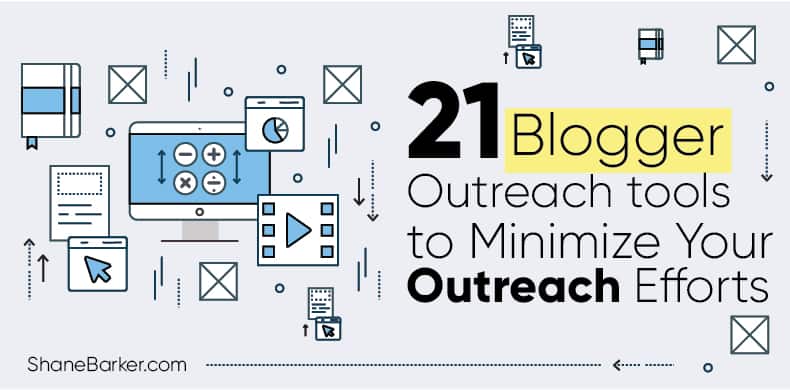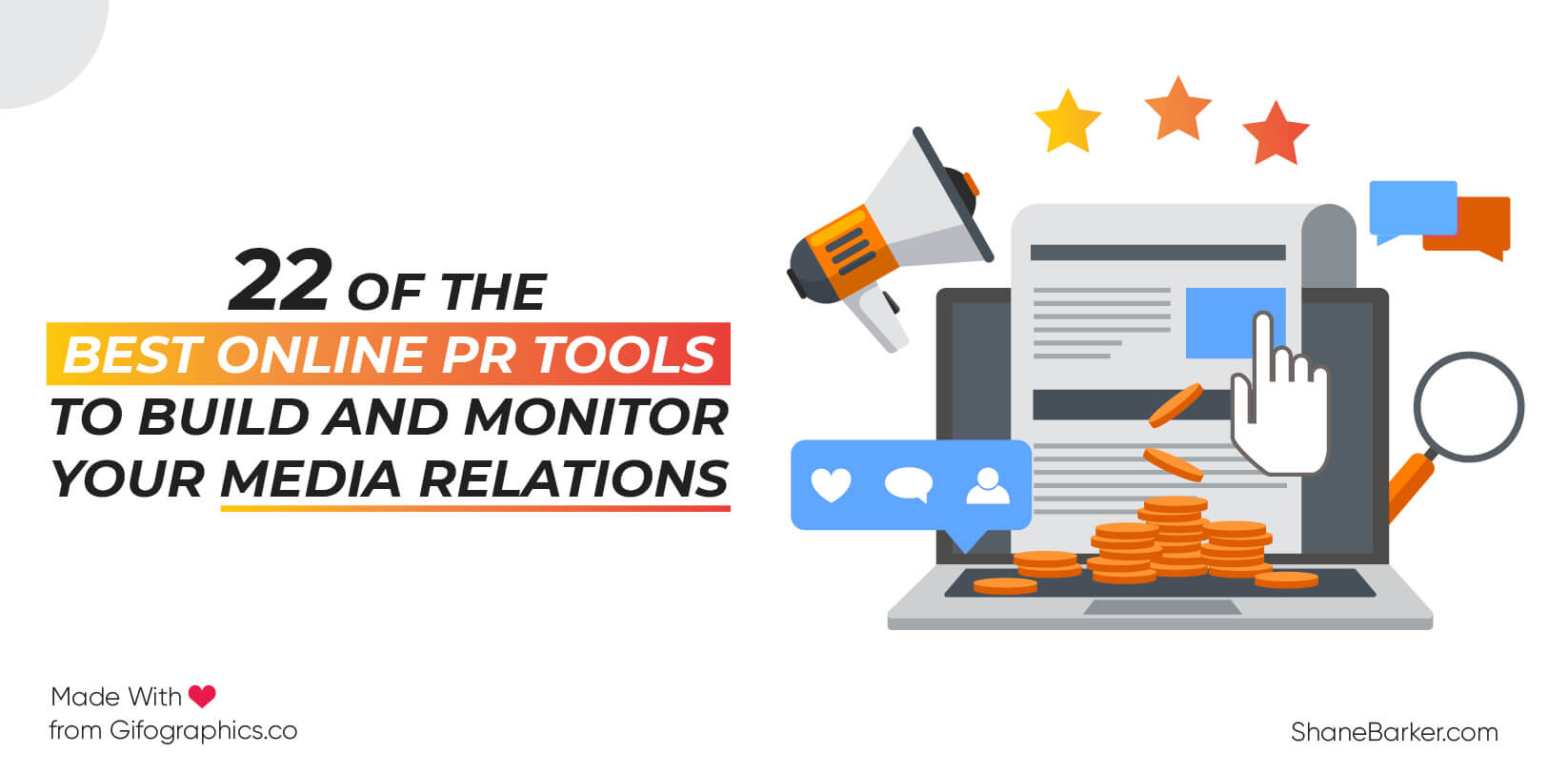Did you know that almost 75% of companies use marketing automation in some form or another in their marketing campaigns.
The reason is simple: it has numerous benefits and is not something that you can ignore.
But first, you need to choose a marketing automation platform that is right for your business. If you do, you can significantly improve your marketing performance.
But, how do you pick a marketing automation platform?
There are some important parameters that you need to consider before you pick a marketing automation platform for your business.
In this post, I will discuss them in detail. You will also find some of the best marketing automation software for different business needs.
But, before that, let’s first understand what marketing automation really is and why you should invest in it.
Ready to learn more?
Let’s get started.
Table of Contents
What is Marketing Automation and Why Do You Need It?
Marketing automation is a way for marketers to automate their routine, repetitive tasks and marketing activities to save time and money.
Marketing automation platforms allow marketing managers to create automated workflows to improve efficiency.
These platforms use artificial intelligence and machine learning to create smart, automated workflows for sales and marketing.
And, these can be applied to various fields like marketing campaigns, advertising, market research, analytics, and more.
The main business benefit of marketing automation comes from the fact that these AI-powered tools can scan and analyze tons of data within seconds.
This level of data processing and analysis is not possible manually, for any business.
Moreover, these tools can provide valuable insights and even perform automated marketing tasks based on these insights.
AI can, for example, track and analyze user behavior on websites and target them with hyper-personalized messages based on where they are in their buyer journey.
It can make targeting so precise that each consumer only receives marketing messages that are relevant to them.
But, how can you pick a marketing automation platform for your business?
Well, that’s what this post is all about. In the next section, you will learn about the top selection criteria that you should use to choose a marketing automation platform.
How to Choose a Marketing Automation Platform: Key Selection Criteria
When you think about choosing an automation platform, the two things that come to mind are features and price. Right?
But, which features should you look for? And, how do you compare prices when there is such a vast range of plans?
If you have any such doubts, then you have reached the right place. In this section, I will share a detailed guide on which automation features you should look for while comparing automation platforms.
You will also find a comprehensive list of all of the selection criteria that you should consider when comparing products. So, let’s get started.
1. Features
The first and most important criterion, of course, is the kind of marketing automation features that a tool provides.
The most common application of automation in marketing is in the form of automated emails. This is one feature that almost all marketing automation software provides.
So, the key distinguishing factor becomes the level of automation within email campaigns for marketing that a tool can provide.
And, if there are other marketing automation features that it has other than automated emails, that is also important to consider.
Some common applications of marketing automation are in the field of social media marketing, lead generation nurturing, analytics and reporting, and advertising.
Want to know more?
Let’s discuss each of these in more detail.
Email Automation
Email automation in marketing campaigns is in the form of sending automated emails that are triggered by certain user actions.
For example, when someone subscribes to your newsletter, they get an automated welcome email.
Similarly, if someone leaves an abandoned cart, they receive an automated abandoned cart email.
With marketing automation software, you can create detailed email workflows that allow you to create email sequences.
This means that people at different stages of your sales funnel will get different emails, relevant to them. So, this should be an essential part of your email marketing strategy.
But, how can you choose a marketing automation platform?
Well, some platforms provide unlimited email sequencing options, while others do not. This is one of the most important criteria to choose a marketing automation platform for your business.
Ideally, for a large business, you would need to create large and complicated email workflows. For that, unlimited emails and unlimited sequencing features are quite beneficial.
You should also compare the email workflow templates that each tool provides to create your drip emails.
Some even provide templates to design highly-converting landing pages. These templates for emails and landing pages help make your job easier and craft engaging emails.
Another important feature is the option to personalize your emails. This is an advanced feature where you can personalize entire email campaigns without any manual effort.
So, choose a marketing automation platform that provides personalization options, in addition to automation.
But, that’s not all!
The best and most important distinguishing factor between different platforms is actually their ability to segment email lists and send batch emails.
Email segmentation is an important feature where these tools can organize and segment your email lists using multiple factors. This allows you to send more relevant emails to each user.
Social Media Automation
Social media automation usually comes in the form of automatic scheduling and posting of social media content. It also includes tailoring content for different social media platforms.
This is a feature that can be seen in standalone social media scheduling tools but is often not available in most marketing automation platforms.
Analytics and Reporting
Most good marketing automation software provides in-depth analytics as well. What you should look for when choosing a marketing automation platform is multi-channel analytics.
A platform that is able to integrate your analytics data from different channels on a single dashboard is what you should opt for.
Also, analytics tools that provide API access are better for advanced analytics. So, check for this feature when you do your research on any tool.
Lead Nurturing
Marketing automation platforms can also be used to segment and nurture lead generation.
These tools can track user behavior on a website and send automated alerts for specific triggers.
This is an important feature for sales teams, as it avoids the need for them to pay attention to each new lead.
In fact, they can receive automated alerts for different leads and can take action based on them.
Also, marketing automation software can track and analyze user behavior and other factors for lead scoring. It can tell you which leads are most qualified and which are least qualified.
This allows you to focus on your most important leads first and keep the rest for later. This, in turn, improves the overall effectiveness and efficiency of your sales team.
Advertising
The most common applications of automation in the field of advertising are budget optimization and precise audience targeting.
There are automation tools that automatically manage your bids to get you the most bang for your buck.
Additionally, automation platforms can also help you with audience targeting and show your ads only to the most relevant audience.
In fact, there are tools that allow dynamic advertising, which means that a different ad is shown to different audiences, based on their preferences.
2. Price
Given that most marketing automation platforms are mainly focused on email automation, their pricing depends on your contact list or the number of emails sent.
So, make sure that before you choose a marketing automation platform, you compare the prices keeping this in mind.
Don’t compare the plans in absolute terms, but in terms of how many contacts you can reach for a certain amount of money.
Also, look for marketing automation software vendors that provide customized pricing plans based on your exact needs.
This way, you can save a lot of money by not going for a plan that you don’t even need. You can simply pay for what you use and the features you need.
Here’s an example of one customization option where you upload your contact list and get a pricing plan tailored to your needs. You also have the option to select your email volume, to further tailor your plan.
Image Source Factoreal
3. Scalability
Adding to the previous point, you should opt for a tool that provides more scalability. You may think you should choose a small tool that meets your current needs, but it won’t be able to support you when your business grows.
This does not mean that you need to invest in premium, enterprise-level tools from the start.
But, make sure that you check whether the tool that you choose has enterprise plans or customized plans that you can move to later.
Also, look for the kind of limits that a tool imposes and whether they provide the option to expand those limits with higher plans.
4. Ease of Use
When someone hears “marketing automation,” they assume that it is something complicated and definitely not easy to use. However, that is not true.
In fact, ease-of-use should be one of the most important criteria for choosing a marketing automation platform.
There is no point in investing in something that you can’t use to the full capacity. Also, having a complex tool can be time-consuming and end up wasting your time.
So, what should you do?
When you choose a marketing automation platform, make sure that you choose one that has a clean and simple user interface that is easy to use.
Most marketing automation software solutions will claim to have that, but don’t just take their word for it.
The best way to test it is to request a demo or use a free trial before you invest in it. By trying the tool yourself, you will be sure of whether it is something you can use on a daily basis or not.
Moreover, trying a tool is also a good way to check out all the features it claims to have and how effective they actually are. So, always ask for a demo or free trial before investing in any tool.
5. Integrations
Another important factor for choosing a marketing automation tool is the kind of integrations that it provides. Most automation tools focus on one or two aspects like email, sales, automation, advertising, etc.
So, to get the most out of such marketing automation software, you need to integrate it with your other tools and platforms.
Even with an all-in-one automation tool, you still need to integrate it with your customer relationship management (CRM) software solution, email marketing tool, etc.
So, while researching any tool, look for the level of CRM system integration it is capable of. Specifically, which other tools it integrates with and how well.
You will find this information easily on the landing pages for these tools and this is something they will highlight.
You can also contact their sales teams to ask questions and confirm whether their tool can integrate with the marketing automation software and tools that you are currently using.
The more easily all your tools integrate, the easier your life will be in the long run. It is always better to opt for a set of tools that work well together, rather than each tool working in a silo.
6. Customer Support
This is an often overlooked criterion, which is actually quite important. You should always opt for platforms that have a solid support team backing them.
But, everyone claims to have good customer support. In fact, at face value, almost all automation software will look similar when talking about customer support.
So, how can you assess whether a tool provides good customer support or not?
First, you should look for the different support channels that they offer.
Do they provide only chat support or do they have phone support as well?
Or, do they offer a dedicated account or marketing manager for each client?
How long do they take to respond to customers?
Research the websites carefully to look for these details. Sometimes, you might have to go through the FAQs sections to find such information.
Also, once you have a basic understanding of what kind of customer support each platform offers, verify those claims by reading reviews by actual customers. But, more on that in the next section.
7. User Reviews
This is probably one of the most important selection criteria of all, even though it is not often regarded as such.
User reviews can tell you a lot more about a product than anything else you will find on their websites.
In fact, user reviews are your way of verifying all the claims that a business makes, by listening to the actual customers of the product.
These reviews by customers are a gold mine when it comes to finding useful information about a product, its ease-of-use, customer support, etc.
So, do your research and read multiple reviews by customers and articles before you invest in any tool for your business.
Also, compare user ratings on various features to compare products and make your final selection.
Top Three Marketing Automation Platforms for Different Needs
Now that you have a clear idea of what to look for, you can start your research on various marketing automation tools.
To get you started, I have compiled a list of the three best platforms for marketing automation that you can consider.
Each of these fulfills a different purpose and is meant for different types of businesses or organizations. So, consider your needs first, before you make a choice.
Also, these are just to get you started, you can expand your search to more such software before you finally decide which one is the best for your business.
Ready to find out our picks for the three best marketing automation solutions?
Here you go.
1. Factoreal – Best Tool for Omnichannel Customer Engagement
Factoreal is an all-in-one marketing automation software solution that covers almost all important automation capabilities.
From email marketing to advertising to website tracking, it can help you with all your marketing automation needs.
It also provides specialized solutions for ecommerce, sports, and healthcare businesses. So, if you belong to any of these industries, this just might be the tool you were looking for.
Want to know the best part?
Using this tool, you can create automated workflows to cover entire buyer journeys for your business.
It provides automation options for all the important customer touchpoints, across various channels. This is what makes it the best tool for omnichannel customer engagement.
2. Mailchimp – Market Leader for Email Automation
This is one of the most popular email marketing automation software solutions with advanced email automation features for marketers.
It is the most trusted tool for marketing managers who run sophisticated drip emails.
Mailchimp is not so much a marketing automation tool as it is an email marketing platform.
So, if you are looking for the best email marketing automation tools, then this is a top choice for your business.
However, if you require a software solution that can help you with multiple aspects of marketing automation, then you should opt for a more multipurpose software solution.
3. Salesforce Pardot – Premium Tool for Enterprises and Existing Salesforce Users
This is one of the most expensive marketing automation software meant for enterprises and large businesses.
It combines the power of the Salesforce customer relationship management system with marketing automation.
Making it a powerful sales and marketing tool through customer relationship management integration.
This is also a multipurpose marketing automation solution that can help you automate different types of workflows and not just emails.
Anyone who already uses Salesforce CRM system might be inclined to opt for this tool to get the best results.
However, as a standalone product, Salesforce Pardot is more expensive than most other marketing automation tools.
FAQs
Q1. What are marketing automation platforms?
A. These platforms are tools that can help you automate your routine and repetitive sales and marketing tasks.
You can use them to create automated workflows throughout a buyer’s journey to personalize messages at various consumer touchpoints.
Q2. What are the different types of platforms?
A. Some marketing automation tools are niche and deal with only one aspect of marketing automation.
On the other hand, some are multipurpose tools that can help you automate tasks in different areas of sales and marketing.
Q3. Are automated tools available in the market?
A. Yes, marketing automation tools are readily available. You can find a wide variety of such tools, each catering to different marketing needs.
Q4. How can I choose a marketing automation platform?
A. You should first make a list of parameters that are important for your business and then compare tools based on them. Use the list of selection criteria given in this post for reference.
Q5. What is the best marketing automation tool?
A. There are many good marketing tools available in the market in 2021, but here are our top three picks:
- Factoreal
- Mailchimp
- Salesforce Pardot
Q6. Which automation tool is in demand 2021?
A. All the tools mentioned above are in demand and cater to different types of customers and marketing needs. So, choose the one that fits your requirements the best.
Ready to Choose a Marketing Automation Platform?
Hopefully, this guide was enough to help you figure out how to choose a marketing automation platform that is right for you.
The selection criteria mentioned above are all you will need to make an accurate comparison and choose a platform that suits your business needs.
So, use this as your guide and start your research on the best marketing automation platforms.
Have any more questions on the topic? Feel free to drop a comment in the comments section.






![digital marketing for startups: the strategies to use in [year] 7 best digital marketing strategies for startups](https://shanebarker.com/wp-content/uploads/2021/09/best-digital-marketing-strategies-for-startups.png)

Wow, this is an informative blog, really helpful!
Hi Shawn, thank you so much! I’m so happy to know that my post about Marketing automation was helpful for you.